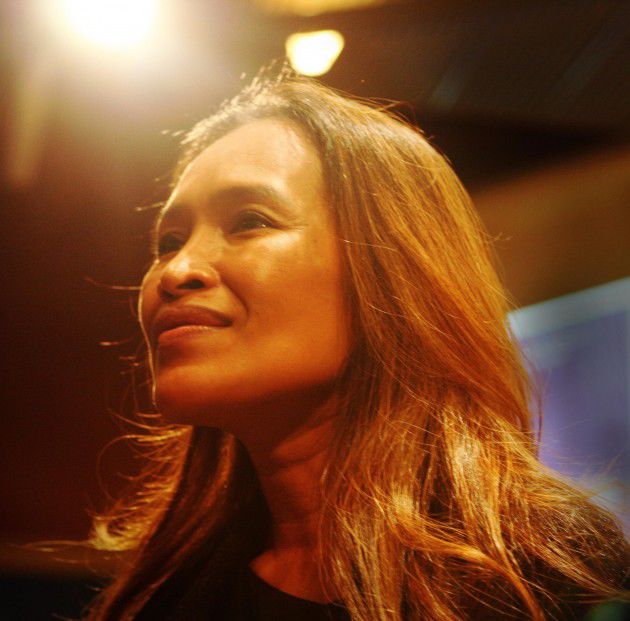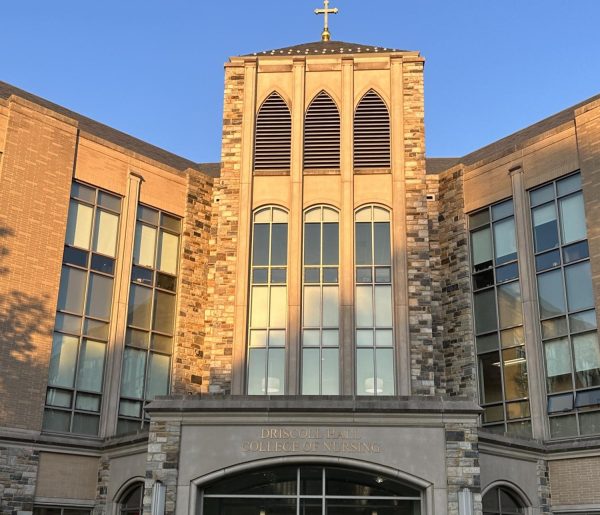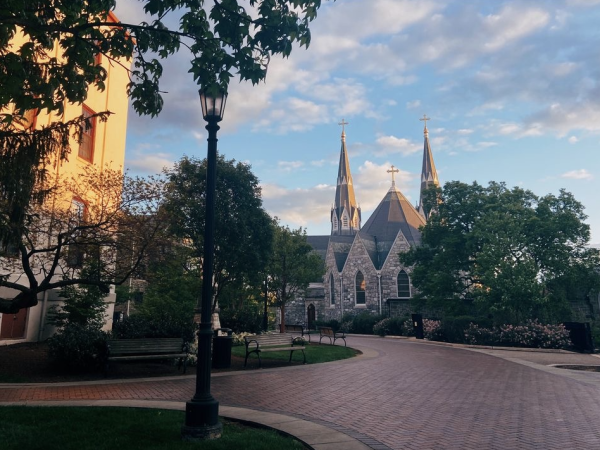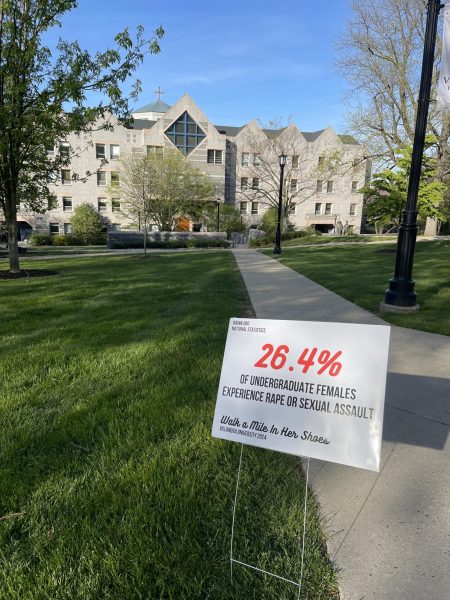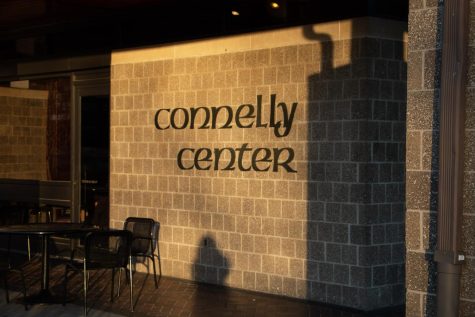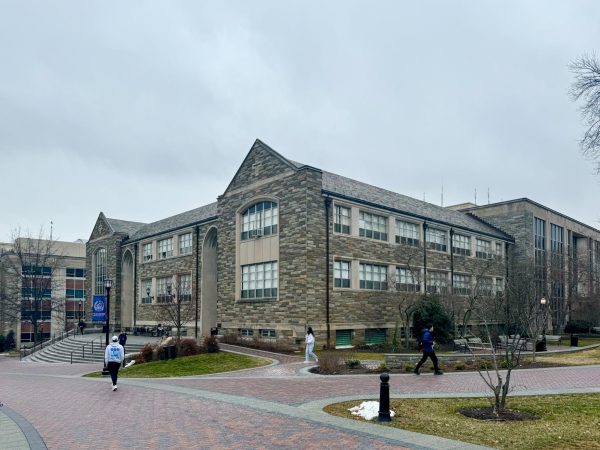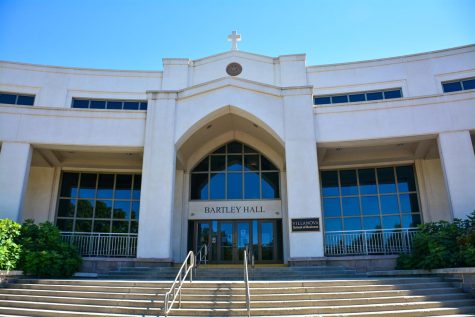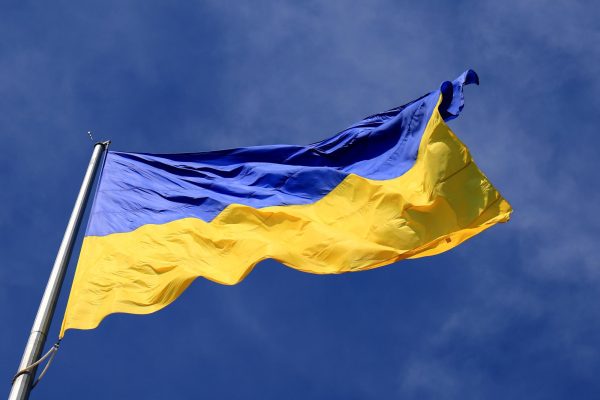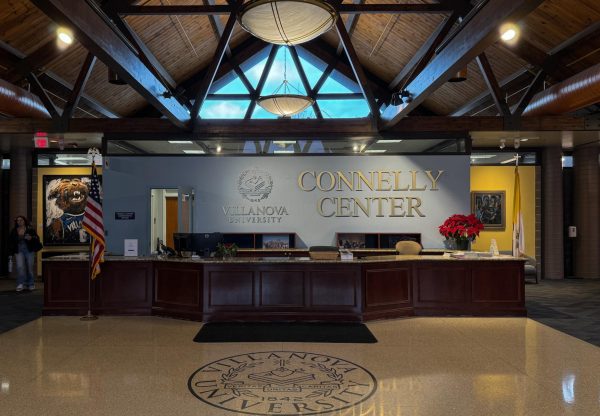Somaly Mam inspires students to enact change
February 8, 2012
Somaly Mam, a Cambodian human rights activist who works tirelessly to address the tradition of sexual slavery in her home country, spoke in the Villanova Room of Connelly Center this past Thursday.
Mam, a “CNN Hero,” Glamour magazine “Woman of the Year,” and one of TIME magazine’s 100 Most Influential People, maintained a humble tone throughout Thursday’s lecture, insisting, “I’m not a hero, I’m just Somaly.”
“The Road of Lost Innocence,” an honest, compelling account of Mam’s life’s journey published in 2008, reveals her most intimate thoughts and private struggles, from her childhood in the Cambodian jungle to her current work as a global leader in the fight against sexual slavery.
“It’s a global industry,” she writes, “and for some reason the world puts up with it.”
Born around 1970 in the countryside of northeastern Cambodia, Mam grew up in a small village home to the Phnong ethnic minority tribe. Her actual birth date is unknown. Mam was left to her maternal grandmother by her parents, who never returned. Around the age of nine or 10, Mam was placed in the hands of her “grandfather,” a man who claimed to be from the same village as her father. Mam was forced to act as his servant, beaten and starved at his will.
At the age of 14, Mam was married off to a young soldier who often raped and beat her. When he left to fight with the army, Mam took a job working at a local medical clinic. Months later her grandfather returned, taking Mam away to Cambodia’s capital city, Phnom Penh. She did not know it then, but Mam had been sold into sexual slavery in order to pay off her grandfather’s debts.
In her years at the brothel, Mam lived under terrible conditions. She faced the constant threat of cruel beatings, even death.
In her book, “The Road of Lost Innocence,” Mam relays stories of being perpetually raped and beaten by male clients, and starved and punished by the brothel owners when she tried to rebel.
Perhaps the most shocking, brutal punishment Mam faced occurred early in her time at the brothel. She was tied down as one of the brothel owners poured a bucket of live maggots over her body and into her mouth.
Facing seemingly insurmountable odds, Mam was able to escape the brothel and begin to create a new life for herself. With the help of her then-husband, Pierre, she realized her passion for helping the countless girls still stuck in the brothels.
In 1996, the couple began a Cambodian-based non-governmental organization, with a name that translates to “Acting for Women in Distressing Situations.”
The organization has saved thousands of young women from sexual slavery and placed them in the care of several centers in and around Cambodia.
“To people, I just want to tell them one thing: their life, their experience [does] not mean like your life is very bad, bad thing,” Mam said. “You just have to manage what you want your life to be. You have to manage your life and then believe in yourself. If you try to really be happy, [the] more you help the people, the more they help you.”
All eyes and ears were glued to Mam as she discussed her personal experience, intimate thoughts and the wider global ramifications of sex trafficking. Perhaps most engaging was Mam’s positive outlook on life. In the midst of sharing stories from her difficult past, Mam made the audience smile and even laugh. She encouraged audience members to spread their happiness to others, especially those in need.
“They don’t want to laugh? Make them laugh. Make them bright. I’m like this; I try to make them laugh,” Mam said. “You know my life is so difficult. I never talk, really, in 20 years. I never laugh, 20 years. Now the rest of my life, laughing. [Your] life is so heavy, so I try to make the people laugh.”
Throughout the lecture, Mam re-focused her speech onto the girls she is helping. She estimates that some 7,000 girls have been saved from a life of sexual slavery at the hands of her team and organizations.
“My hope is my girl[s],” she said. “They inspire me. They are my hope, my big hope. Without them, I am not here today.”
The problems in Cambodia are not foreign to the University. Over winter break, a group of about 15 University students traveled to Cambodia on a service break trip.
Mam encouraged more students to come to her home country and to experience firsthand the work that goes on in her centers. She noted, however, that young people oftentimes become overwhelmed when trying to get involved with a cause.
“You are very stressed, say[ing] ‘I want to do that! I want to do that!’ You want to do a lot, and then you do nothing. Try to make one thing,” Mam said. “One is a lot.”
The event ended with a question-and-answer session for faculty and students. When asked what University students could do to help her in her work, Mam replied, “Helping the people doesn’t mean you have to go to Cambodia or you have to go somewhere else. Just be[ing] you, helping the people in front of you first.”
After a short pause, she spoke again. “Each of you can do one thing,” she added. “Start today.”
After the lecture, Mam remained in the Villanova Room to sign copies of her book. She signed my copy with the message, “Life is Love.” Coming from Mam, no words have ever seemed more true.
The Second Annual Spotlight on Leadership Lecture was co-sponsored by the University Office of Student Development and the Center for Peace & Justice Education. The Leadership Lecture Series kicked off last year with speaker Bob Woodward, best-selling non-fiction author and famed investigative journalist for the Washington Post.

